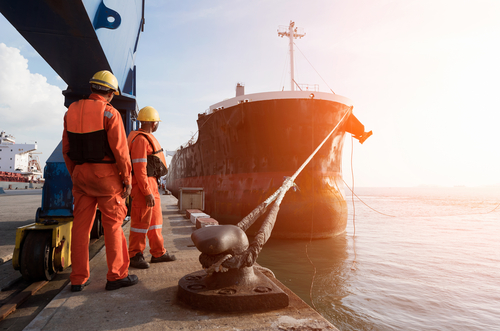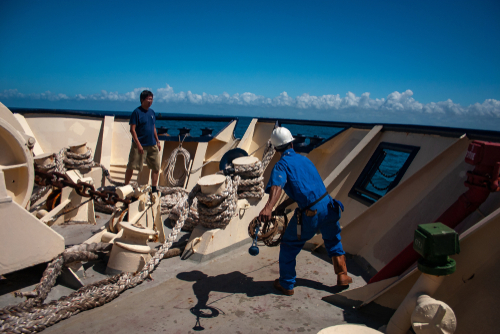Despite offering lucrative career options, the maritime industry is fraught with risks and dangers. Maritime injuries and accidents can happen at any time, and you might find yourself in need of professional assistance immediately after your maritime injury, even with training and impeccable compliance with safety rules and regulations,
Sometimes, accidents in the maritime cargo handling industry and longshore work are caused by factors beyond anyone’s control, but sometimes, they happen as a result of employer’s negligence. Consult one of our leading longshore attorneys and find out what your rights are if you are a maritime worker who has suffered a workplace injury, and even if you are just considering a career in the maritime industry.
What are maritime workers?

Maritime work is any type of work performed on or relation to ships. Land-based maritime work includes working in harbors and ports. Individuals performing this type of work are covered by the Longshore and Harbor Workers Compensation Act, while seamen are covered by the Jones Act.
What is maritime career?
The maritime industry is a broad concept. Having a maritime career means working in the domain of:
- Loading cargo
- Unloading cargo
- Vessel construction
- Vessel repair
This is different from the work performed by seamen, although the two types of work are closely connected and occasionally intertwined.
What is maritime injury?
When it comes to maritime work, there are many dangerous factors at play: stressful workplace atmosphere, unpredictable weather, malfunctioning equipment and other risk factors. Common maritime injuries can take many forms, including:
- Head injuries
- Broken limbs
- Loss of limbs or amputation
- Shoulder injuries
We have lawyers who specialize in the area of maritime injuries and accidents who can take swift action to help you file your claim in accordance with the law and receive compensation.
What are maritime accidents?
Here’s an overview of the most common maritime accidents, depending on the nature of the specific job a person does:
- Dock and pier accidents
- Falling overboard
- Slips & falls
- Enclosed spaces
- Chemical burns
- Repetitive use injuries
- Accidents due to improper training
Having a trusted attorney with the experience, competence and determination to pursue even the most complex maritime accidents is just what you need if you want to ensure the optimal outcome.

Do I qualify for compensation under the Longshore Act?
In order to be eligible for compensation under the Longshore Act, you need to pass two tests:
- Status Test, a test used to determine whether you are a maritime worker. At least some portion of your job has to involve maritime work;
- Situs Test, a test used to determine the location where work is performed. A maritime worker cannot have an administrative or office job. You have to work near or around water in order to be eligible for compensation under the Longshore Act.
If you meet both criteria, you may be eligible for the following benefits:
- Temporary or permanent disability payments
- Medical treatment
- Medical transportation
- Rehabilitation costs
- Physical therapy
We’re here for you in your hour of need
Workers Compensation Attorney Group of San Diego has the most competent longshore attorneys, ready to rush to your aid. As a longshore worker working in San Diego Bay area who has suffered a workplace injury or accident, you need the help of experienced professionals ready to think on their feet.
Schedule your initial consultation today and we’ll go over the details of your case so as to determine your best course of action. We will inform you about your legal rights and the benefits and compensation you may be entitled to and present you with a list of options. Time is of the essence so let’s not waste it. Call today.





